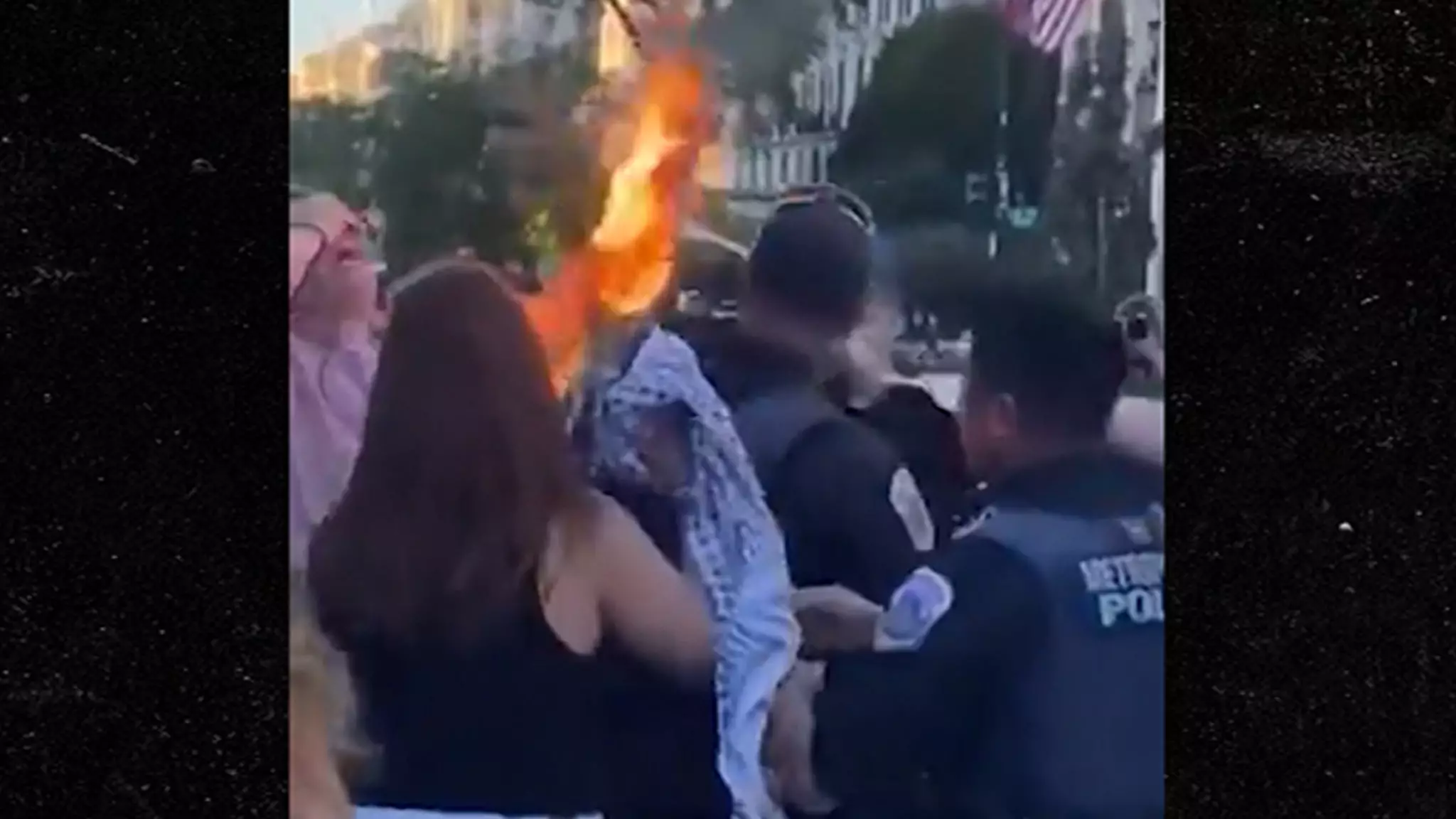In a chilling display of anguish and desperation, a protest outside the White House took a tragic turn as a photojournalist reportedly set himself on fire. This dramatic episode is a stark reminder of the intense emotions surrounding the ongoing Israel-Hamas conflict, one of the most complex and painful issues in modern geopolitical discourse. As protests erupt worldwide, the events of this demonstration highlight not only the elevated stakes but also the human cost of conflict.
On a Saturday evening in Washington D.C., Samuel Mena Jr., a seasoned photojournalist, became the focus of a heartbreaking scene. Video footage captured the moment he ignited his left arm, sending flames licking upward as he staggered across the street in unbearable pain. Assisting him were police officers, but their efforts—using a simple water bottle to extinguish the flames—did little to alleviate Mena’s suffering, as he screamed in agony. Emergency response teams swiftly transported him to a local hospital, where he received treatment for non-life-threatening injuries. The dramatic act of self-immolation can be seen as a defiant cry against the backdrop of global turmoil.
The gathering that witnessed this tragic incident had unified to advocate for an end to the brutal conflict unfolding in the Gaza Strip. Reports indicate that the violence has led to the deaths of upwards of 40,000 Palestinians, a shocking statistic that underscores the scale of human suffering. Protestors aimed to draw attention to the humanitarian crisis, illustrating the dire consequences of the ongoing military operations. Each rally like this serves as a reminder of the lives lost and the families torn apart by relentless violence, making their call for peace increasingly urgent.
The roots of the Israel-Hamas conflict are complex and deeply intertwined with historical grievances, territorial disputes, and cycles of violence. The latest round of fighting escalated significantly on October 7, 2023, when Hamas launched a surprise attack that resulted in the tragic deaths of over 1,200 Israelis. Israeli Prime Minister Benjamin Netanyahu’s prompt and forceful response led to an extended military campaign in Gaza, which has continued for nearly a year without a clear resolution in sight. Each life lost on both sides amplifies the pain and suffering, making Mena’s actions not merely a personal act of protest, but also a reflection of collective frustration and despair.
This incident should serve as a stark reminder of the emotional toll that prolonged conflict takes on individuals and communities. As we reflect on Mena’s drastic act, it is essential to consider the larger implications of his self-immolation. It underscores not just the urgency of resolving such conflicts but also the psychological strain experienced by those affected. The world must recognize that each protester, every civilian casualty, and each act of violence stems from deeply rooted pain that demands attention, compassion, and ultimately, a path toward healing and reconciliation.
As the cries for peace echo in the streets of Washington and beyond, it is crucial to acknowledge the human stories behind the headlines. The incident involving Samuel Mena Jr. serves as a tragic yet potent reminder of the desperate pleas for peace in a world shackled by violence.


Leave a Reply